A scam is not specifically typified in our Penal Code, and deceiving someone into believing in false feelings is not a crime, asserts Fernanda.
Tag: Criminal Law

Collaboration, corroboration, and spontaneity: the value of the word
Law 13.964, which came into effect on January 23 and originated from the so-called “anti-crime” package, was the major highlight of 2020 in Criminal Law. Despite its reputation for being punitive, this new law introduced important criminal and procedural guarantees into the Brazilian legal system.

Fernanda Tórtima: Moro seeks admission to the Bar Association Sacerj Bulletin | July 2020
Our partner, Fernanda Tórtima, was interviewed in the latest bulletin of the Society of Criminal Lawyers of the State of Rio de Janeiro (SACERJ). She provided her insights on the former judge and minister Sergio Moro’s intentions to join the Brazilian Bar Association (OAB), analyzing the potential repercussions of actions taken by public officials and the current legislation in force.
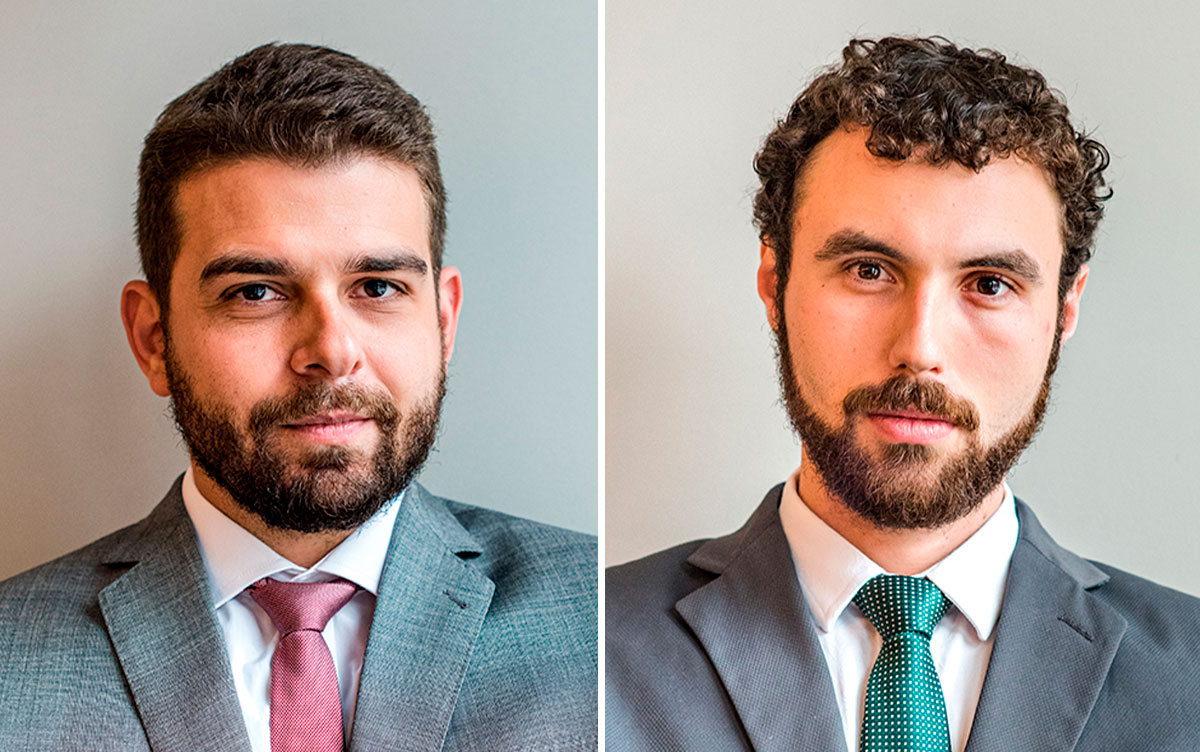
The application of criminal law against crimes that promote the epidemic
Crimes defined in the Penal Code that are particularly relevant in the severe context of a pandemic, although intended to protect legal interests as fundamental as life and health, require the fulfillment of various specific elements for their characterization, which, in practice, limit their applicability.
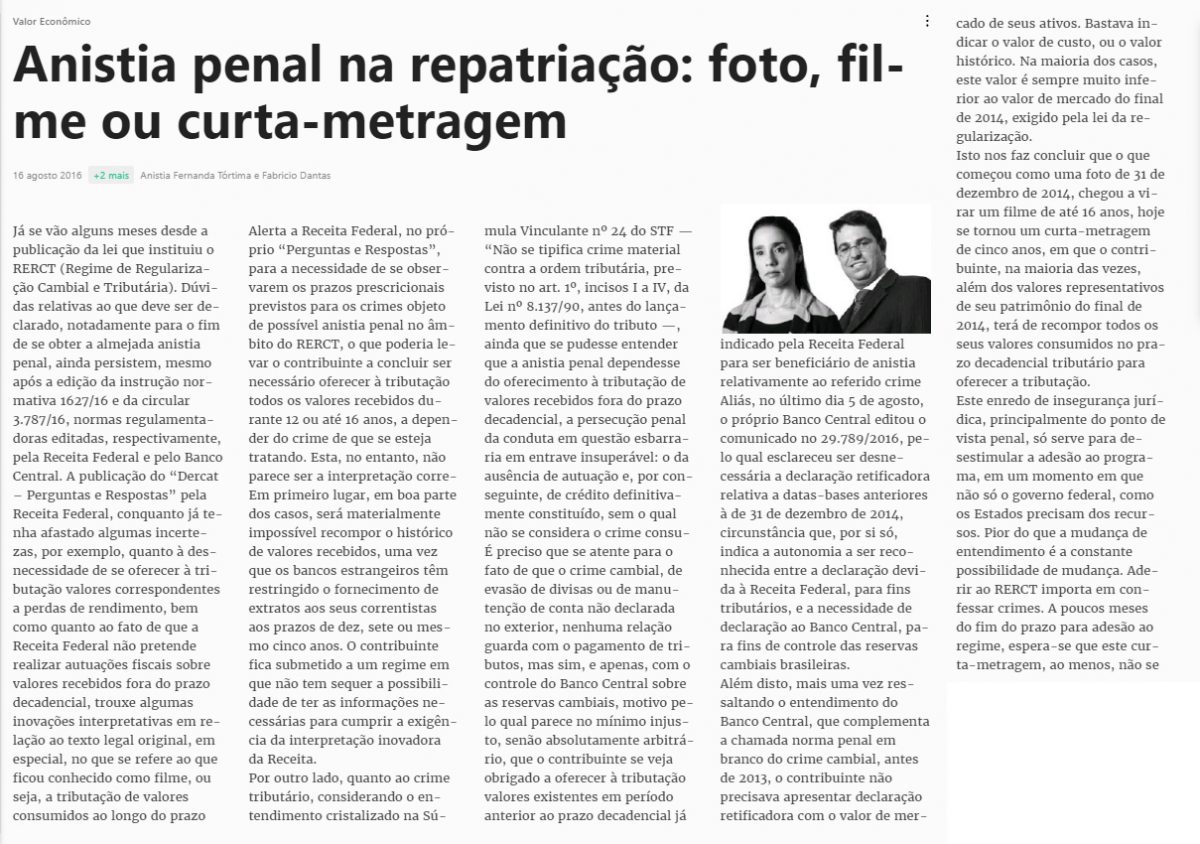
Amnesty and tax repatriation: photo, film, or short film
A few months have passed since the enactment of the law establishing the RERCT (Regime of Exchange and Tax Regularization). Yet, doubts persist regarding what must be declared, especially to secure the sought-after criminal amnesty, even after the publication of regulatory guidelines like Normative Instruction 1627/16 by the Federal Revenue Service and Circular 3.787/16 by […]
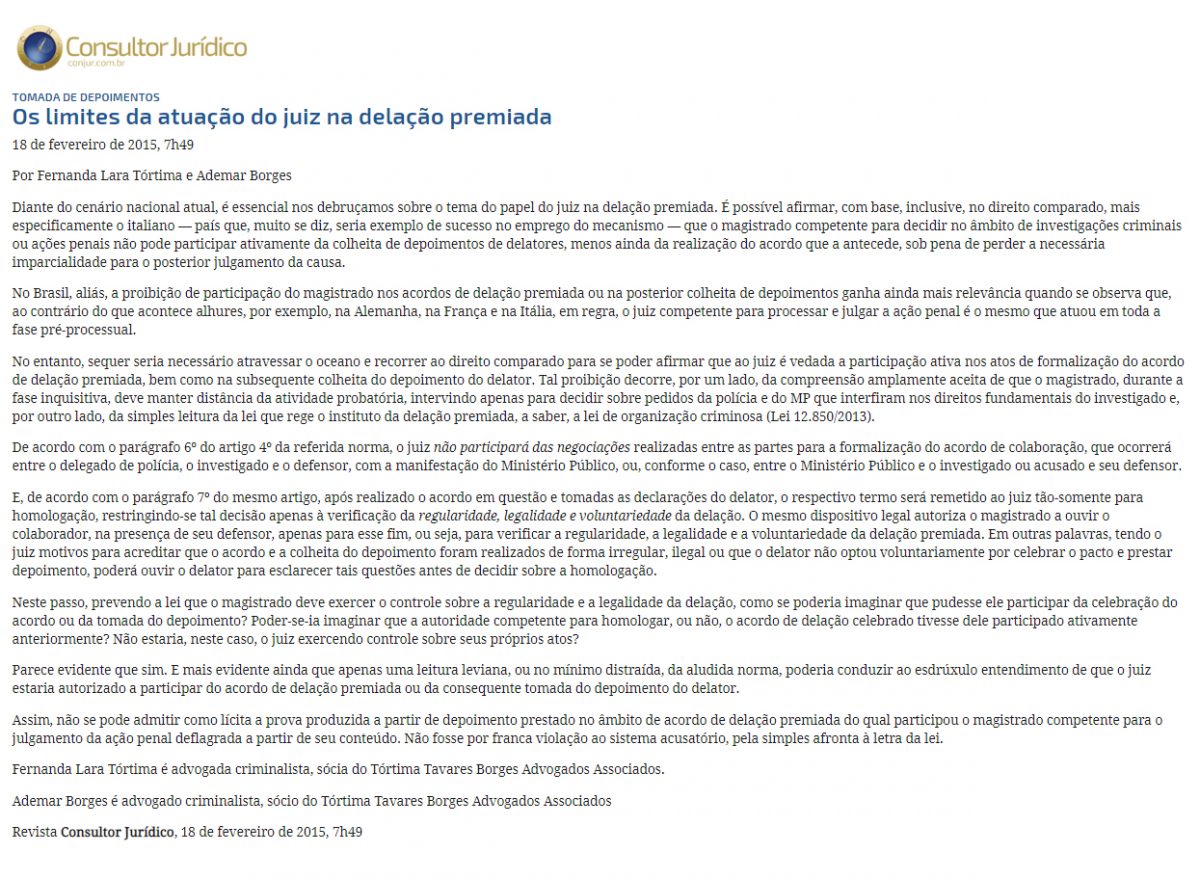
The limits of a judge’s role in plea bargaining
Given the current national context, it is essential to reflect on the role of judges in plea bargaining. Based on comparative law, particularly the Italian system—which is often cited as a successful example of using this mechanism—it is clear that the judge responsible for deciding in the context of criminal investigations or prosecutions must not […]
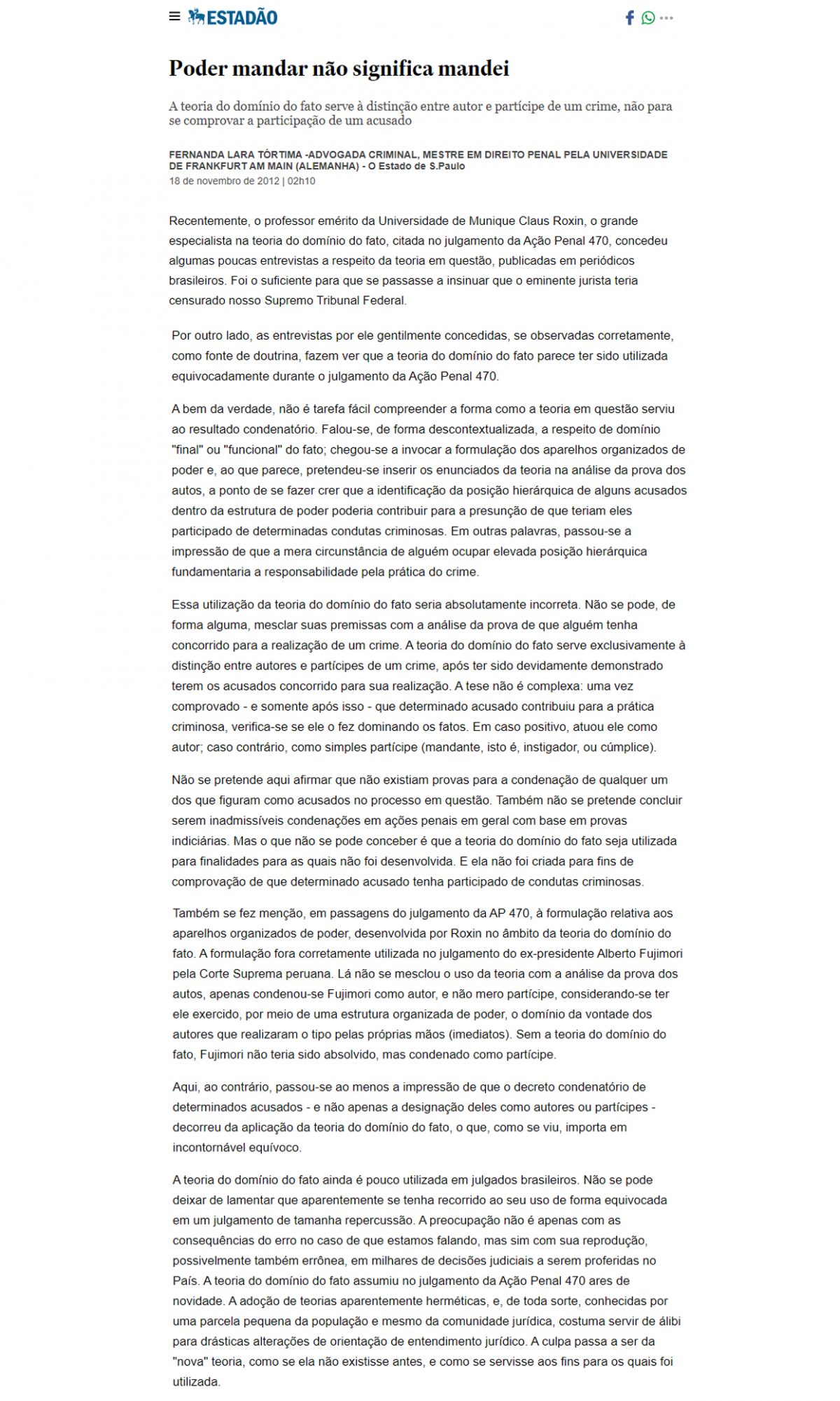
Being able to act does not mean acting
Recently, Claus Roxin, the emeritus professor at the University of Munich and the foremost expert on the theory of control over the act, which was cited during the trial of Criminal Case 470, granted a few interviews on the topic to Brazilian publications. This was enough to spark suggestions that the eminent jurist had censured […]
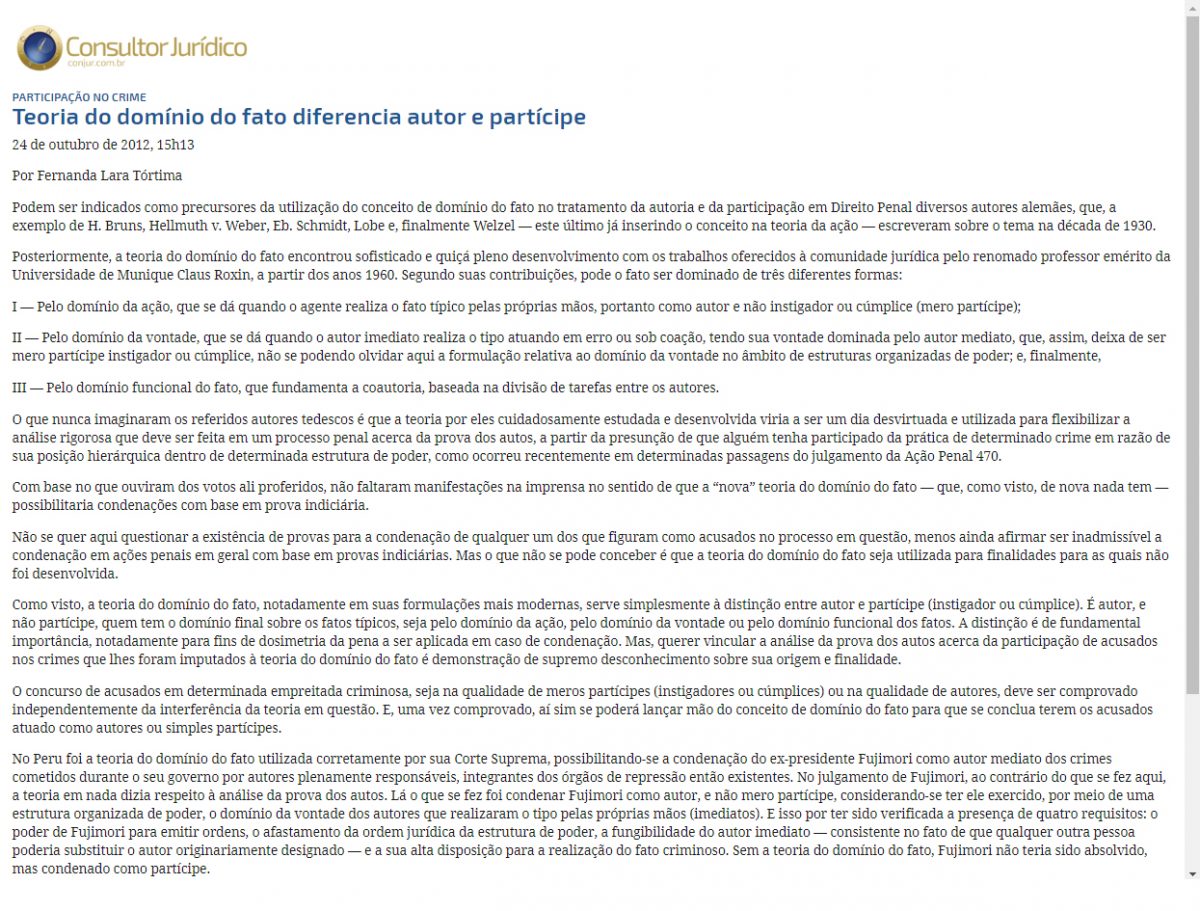
Theory of control over the act differentiates between principal and accomplice
The use of the concept of control over the act to distinguish between principal and accomplice in criminal law was pioneered by several German authors, including H. Bruns, Hellmuth v. Weber, Eb. Schmidt, Lobe, and eventually Welzel. In the 1930s, Welzel incorporated the concept into action theory. Later, the theory of control over the act […]
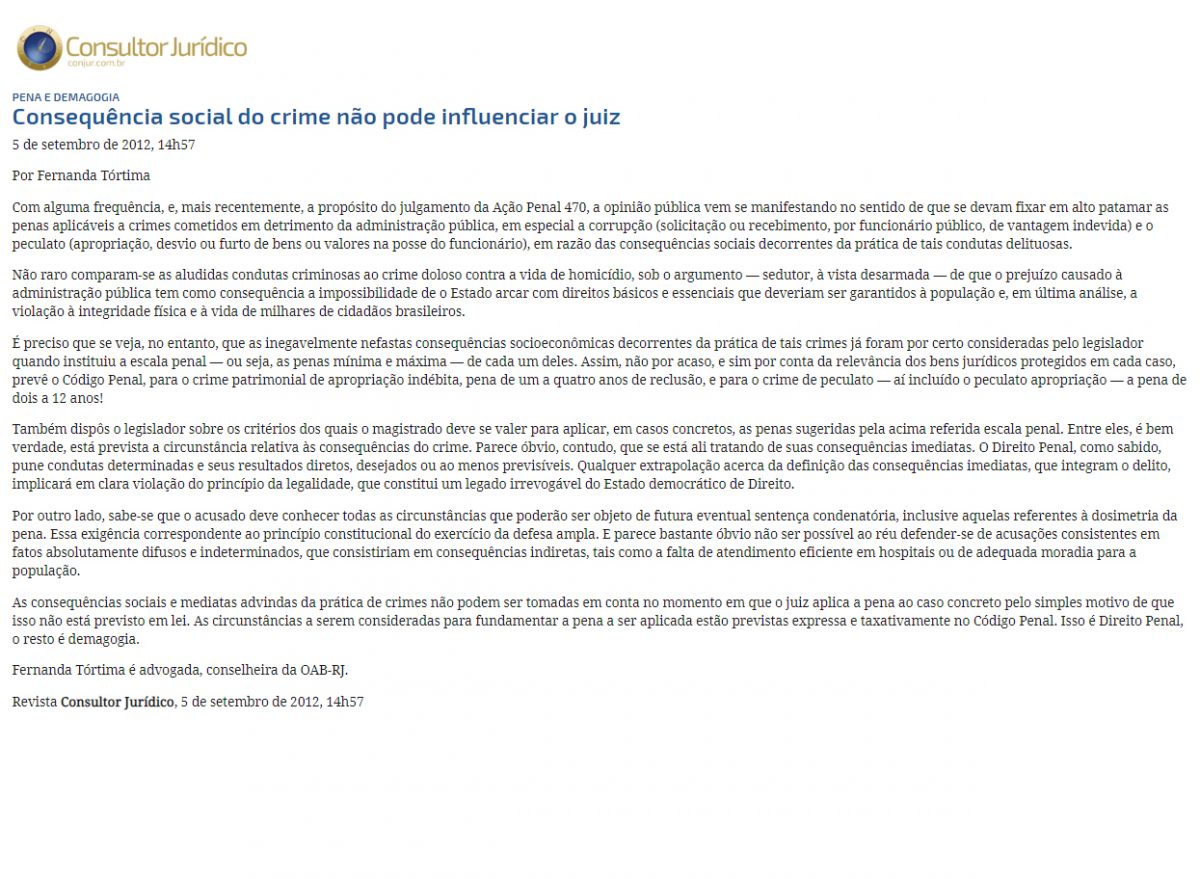
Social consequences of crime should not influence judges
Frequently, and more recently in the context of the trial of Criminal Action 470, public opinion has argued that sentences for crimes against public administration—especially corruption (solicitation or receipt of undue advantages by public officials) and embezzlement (misappropriation, diversion, or theft of assets or funds in the possession of a public official)—should be set at […]

